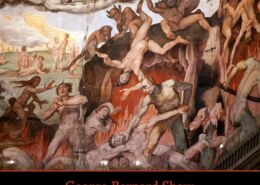Structuralism, influential in English Literature from the mid-20th century onwards, focuses on analyzing texts as structured systems governed by underlying rules and codes rather than as expressions of individual creativity or meaning. This approach emphasizes how language shapes thought and culturaRead more
Structuralism, influential in English Literature from the mid-20th century onwards, focuses on analyzing texts as structured systems governed by underlying rules and codes rather than as expressions of individual creativity or meaning. This approach emphasizes how language shapes thought and cultural constructs, viewing literature as a product of larger, unconscious systems rather than a reflection of personal emotions or intentions.
In English Literature, structuralism has been applied to various genres and texts to uncover hidden patterns, symbols, and binary oppositions that organize meaning. For example, Roland Barthes’ structuralist analysis of myths in “Mythologies” reveals how cultural symbols function within broader ideological frameworks.
Structuralism also critiques traditional literary analysis, arguing for a more scientific, objective approach to studying texts. It encourages scholars to focus on underlying structures and systems of meaning that transcend individual authors or historical contexts.
However, structuralism’s emphasis on systems and structures has been challenged by post-structuralism, which critiques the idea of fixed meanings and highlights the fluidity and instability of language and interpretation.
Overall, structuralism’s impact on English Literature lies in its systematic approach to texts, revealing deeper layers of meaning and challenging traditional notions of authorship and interpretation.
See less

Modern literary remakes and reinterpretations of classics can significantly affect character personalities and the overall storyline in several ways: Character Personality: 1. Modern Sensibilities: Characters are often updated to reflect contemporary values and attitudes. For example,Read more
Modern literary remakes and reinterpretations of classics can significantly affect character personalities and the overall storyline in several ways:
Character Personality:
1. Modern Sensibilities: Characters are often updated to reflect contemporary values and attitudes. For example, female characters may be given more agency and complexity compared to their original portrayals.
2. Psychological Depth: Modern reinterpretations tend to delve deeper into the psychological aspects of characters, providing more nuanced motivations and inner conflicts.
3. Diverse Perspectives: Characters might be reimagined to include more diverse racial, cultural, and social backgrounds, enriching their personalities and making them more relatable to a contemporary audience.
4. Complex Morality: Modern versions often introduce more morally ambiguous characters, reflecting the complexities of modern ethical considerations.
Overall Storyline:
1. Contextual Shifts: The setting and context of the story may be updated to contemporary times or alternative settings, which can alter plot dynamics and themes.
2. Thematic Updates: Themes from the original work are often adapted to resonate with current issues, such as gender equality, racial justice, or environmental concerns.
3. Plot Adjustments: Storylines may be expanded or altered to fit modern narrative styles, which often favor faster pacing and multiple subplots.
4. Intertextuality: Modern reinterpretations often engage in intertextual dialogues with the original works, adding layers of meaning and critique, and sometimes blending elements from different genres or media.
5. Audience Engagement: The storylines are often adjusted to engage contemporary audiences, who may have different expectations and sensibilities regarding storytelling techniques and plot resolutions.
Examples:
1. “Wide Sargasso Sea” by Jean Rhys: A prequel to Charlotte Brontë’s “Jane Eyre,” it reinterprets the character of Bertha Mason, giving her a backstory that addresses colonialism and racial issues.
2. “Pride and Prejudice and Zombies” by Seth Grahame-Smith: This mash-up of Jane Austen’s classic introduces a supernatural element, altering character interactions and adding a new layer of conflict.
3. “The Hours” by Michael Cunningham: A reinterpretation of Virginia Woolf’s “Mrs. Dalloway,” it explores the lives of three women in different time periods, connecting their experiences through shared themes.
In summary, modern literary remakes and reinterpretations of classics infuse new life into familiar stories, reflecting contemporary values and issues while preserving the essence of the original narratives. This process often results in richer character development and refreshed plotlines that resonate with today’s readers.
See less